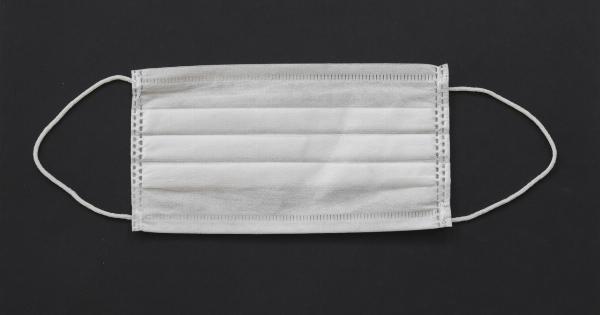Pharyngitis, commonly known as a sore throat, is the inflammation of the pharynx, which is the back of the throat. It can cause discomfort, pain, and difficulty in swallowing.
Pharyngitis is mainly caused by viral infections, such as the common cold or flu, but can also be a result of bacterial infections like strep throat.
1. Gargle with Warm Saltwater:
Gargling with warm saltwater is an effective remedy for relieving pharyngitis discomfort. Mix half a teaspoon of salt in a glass of warm water and gargle several times a day. This helps to reduce inflammation and soothe the throat.
2. Stay Hydrated:
Keeping yourself hydrated is crucial in managing pharyngitis. Warm beverages like herbal tea or warm water with honey and lemon help soothe the throat. Drinking plenty of fluids also helps thin out mucus, making it easier to clear from the throat.
3. Use a Humidifier:
Using a humidifier in your room adds moisture to the air, reducing throat irritation. It helps alleviate dryness and soothes the inflamed throat, providing relief from discomfort.
4. Avoid Irritants:
Avoiding irritants like smoking, secondhand smoke, and polluted environments can prevent further irritation to the throat. These irritants can exacerbate the symptoms of pharyngitis and delay the healing process.
5. Lozenges and Throat Sprays:
Over-the-counter throat lozenges and sprays can provide temporary relief by numbing the throat and reducing pain. Look for products containing ingredients like menthol or benzocaine.
6. Herbal Remedies:
Herbal remedies such as chamomile tea, ginger tea, and slippery elm lozenges can help relieve throat discomfort. These herbs have anti-inflammatory properties and help soothe the irritated throat.
7. Rest Your Voice:
Resting your voice by limiting talking and avoiding shouting or whispering can help prevent further strain on the inflamed throat. Vocal rest allows the throat muscles to relax and recover.
8. Warm Compress:
Applying a warm compress to the outside of your throat can help alleviate pain and discomfort associated with pharyngitis. The warmth increases blood flow, reduces inflammation, and provides soothing relief.
9. Saltwater Nasal Rinse:
A saltwater nasal rinse can help alleviate discomfort caused by postnasal drip, a common symptom of pharyngitis. Use a saline nasal rinse or a neti pot to flush out excess mucus and soothe the back of the throat.
10. OTC Pain Relievers:
If the discomfort from pharyngitis becomes too intense, over-the-counter pain relievers like ibuprofen or acetaminophen can provide temporary relief. Follow the recommended dosage and consult a healthcare professional if needed.
Conclusion:
Pharyngitis can be a painful condition, but the discomfort can be alleviated with some simple and quick tricks.
Gargling with warm saltwater, staying hydrated, using a humidifier, and avoiding irritants can help soothe the throat and reduce inflammation. Additionally, lozenges, herbal remedies, rest, warm compress, nasal rinses, and OTC pain relievers are effective ways to alleviate discomfort caused by pharyngitis. Remember to consult a medical professional if symptoms worsen or persist.




























